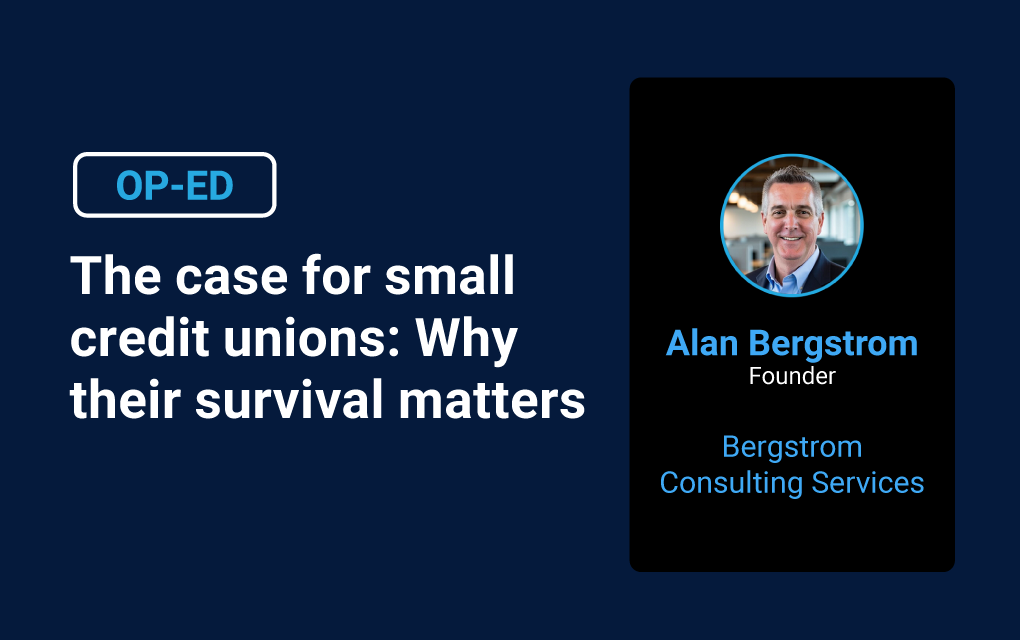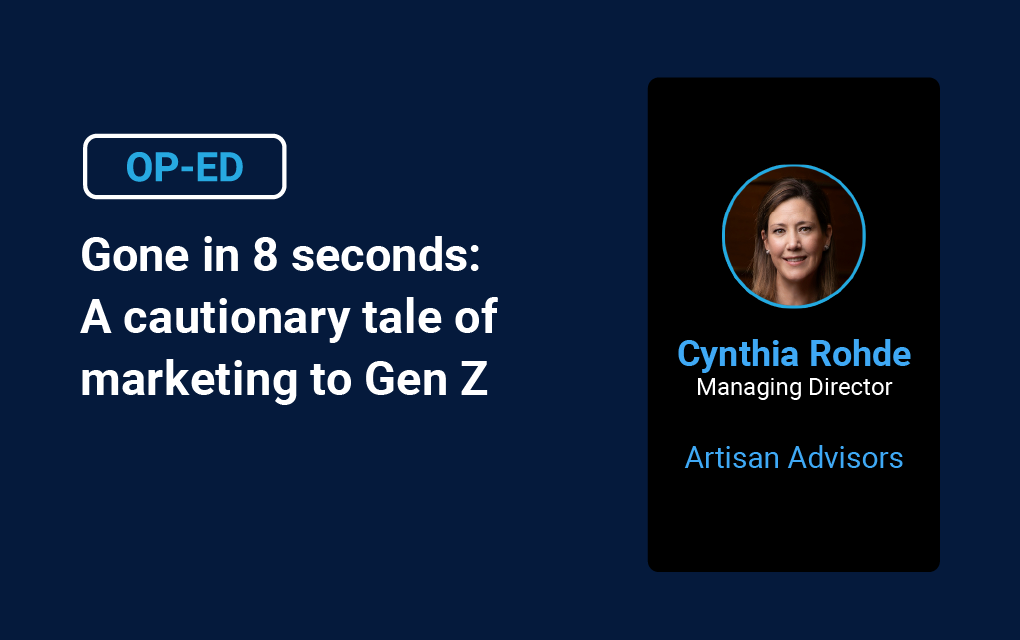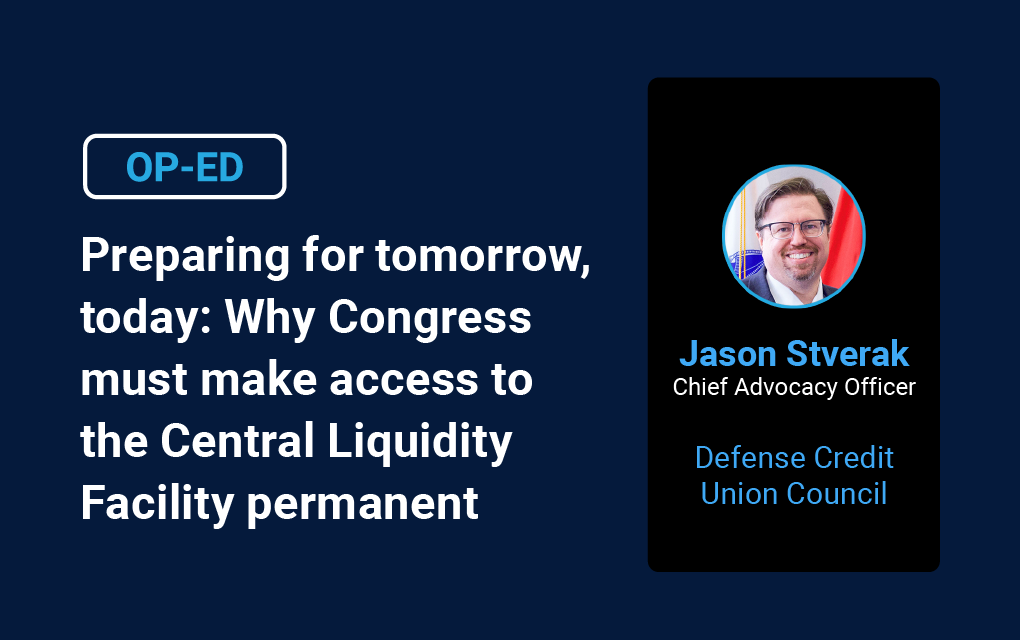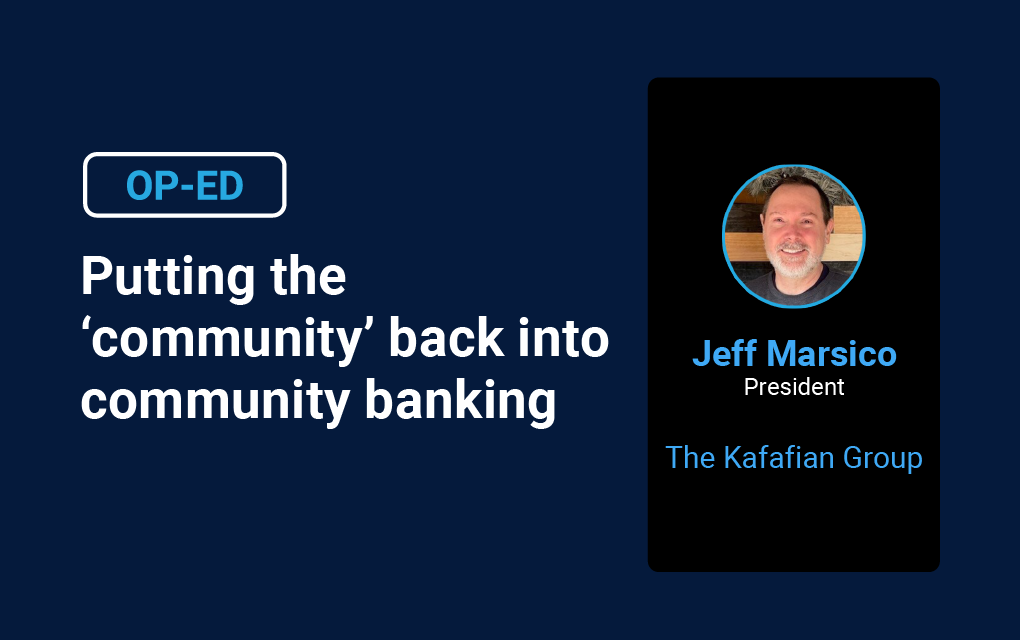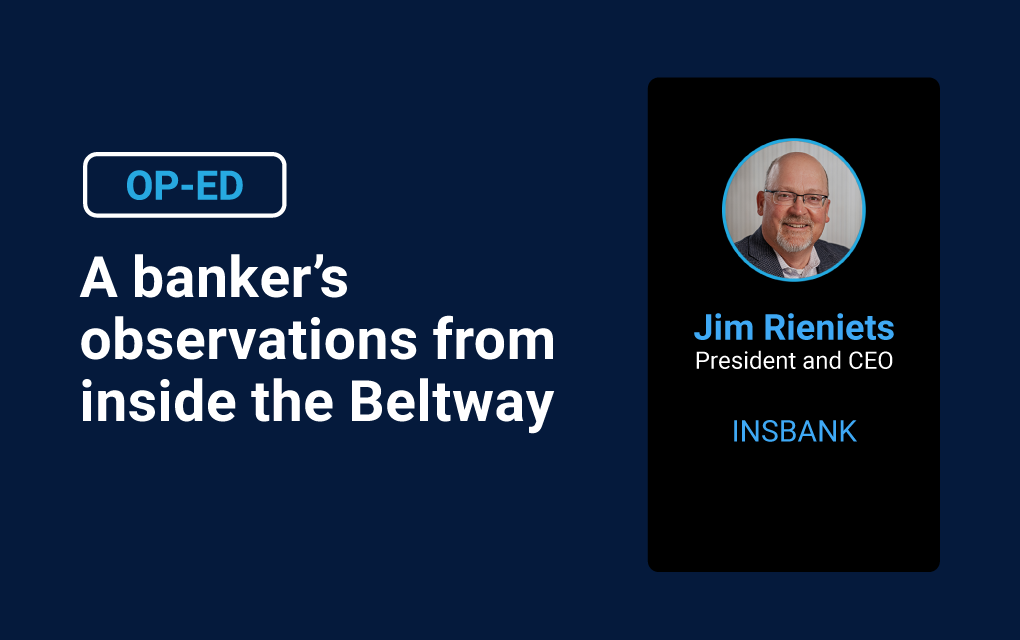Preparing for tomorrow, today: Why Congress must make access to the Central Liquidity Facility permanent
When the COVID-19 pandemic struck in early 2020, America’s credit unions rose to meet the moment. Amid unprecedented economic disruption, they stood firm—offering payment deferrals, emergency loans, and personalized support to help their members weather the storm. But behind that extraordinary front-line response was a critical system-level backstop: the Central Liquidity Facility (CLF). It ensured that credit unions, particularly smaller institutions, had access to emergency liquidity without delay, panic, or red tape.
Now, with the public health crisis behind us but new economic uncertainties ahead, it’s time for Congress to take the lessons of COVID-19 seriously and act decisively. Chief among these is the need to permanently restore and modernize access to the CLF via corporate credit unions. This is not just smart policy—it’s essential preparedness.
A Vital Liquidity Backstop, Born from Crisis
The CLF was created in 1979, in response to the liquidity challenges credit unions faced during the turbulent financial markets of the 1970s. Congress recognized the need for a system-wide emergency liquidity facility—one tailored to the credit union model, member-owned and cooperative by design.
Housed within the National Credit Union Administration (NCUA), the CLF is effectively a lender of last resort for federally insured credit unions. Like the Federal Reserve’s Discount Window for banks, the CLF exists to ensure that temporary liquidity shortfalls at healthy institutions do not spiral into broader systemic risk.
But the CLF is different in a key way: credit unions must opt in to participate, either directly or through an agent. And that’s where the challenge—and the opportunity—lies.
The 2020 Fix: Corporate Credit Unions as Agents
At the onset of the COVID-19 emergency, credit unions and policymakers realized the system wasn’t prepared. Many small and mid-sized credit unions lacked direct access to the CLF. Joining as individual members was costly and complex. Time was short.
Congress acted wisely. Through the CARES Act, it temporarily expanded the CLF’s capacity and reinstated the ability for corporate credit unions to act as agents on behalf of their member credit unions. This meant that thousands of credit unions could gain access to the CLF’s liquidity lifeline without duplicative administrative burdens or costs.
The result? Credit unions had the security they needed to lend confidently, keep serving their communities, and avoid any hint of panic. The system worked—because the right access mechanism was in place.
But unfortunately, that fix was temporary. The enhanced provisions—including agent membership via corporate credit unions—expired at the end of 2022. We are now back in a position where many smaller credit unions are once again cut off from CLF access, unless they go through burdensome procedures to join directly.
This is a dangerous and unnecessary vulnerability.
Corporate Credit Unions: The Sensible Gateway
Credit unions are different from banks. We don’t have shareholders demanding quarterly profits. We don’t take on excessive risk to chase short-term gain. Instead, we serve people—members—often in underserved or niche communities. Defense credit unions, in particular, serve the dedicated men and women of the U.S. military and their families. For many, we are the only safe, affordable financial institution available to them.
That mission is especially important in times of stress—and it’s when access to liquidity matters most.
Yet for a $50 million credit union serving an overseas military base or a small-town veterans’ community, direct membership in the CLF can be operationally impractical. These institutions often rely on corporate credit unions—the backbone of the credit union system—to provide essential services, including liquidity management, investment support, and settlement.
Corporate credit unions are ideally positioned to act as intermediaries for CLF access. They know their members, are already embedded in their operations, and can respond faster and more efficiently than a federal agency navigating one-off applications from thousands of tiny shops.
Restoring their permanent ability to serve as CLF agents is not a policy experiment—it is a proven solution that worked exactly as intended when tested under real-world crisis conditions.
Story continued below…
Let Freedom to Interact With Their Money Their Way Ring This Independence Day!
From instant account opening to AI-powered personalization, discover how to build a digital experience worth celebrating.
July 2nd, 2pm EST
Financial Brand Webinar
Liquidity is a Public Good
DCUC and the broader credit union movement are urging Congress to enact legislation that permanently authorizes agent membership through corporate credit unions.
This should not be a hard lift. There is broad bipartisan support for improving credit union resilience. And there is no credible argument—none—that smaller credit unions should be forced to navigate federal liquidity support alone when a better system already exists.
Moreover, this is a key readiness issue. Just as the Department of Defense prepares for future conflicts in peacetime, so too must credit unions prepare for financial disruptions before they materialize. Our members—especially military members deployed abroad, reservists juggling civilian jobs and service, and veterans seeking stability—depend on us to be ready. We need the tools to meet that responsibility.
Permanent Reform, Not Temporary Fixes
But our exemption from federal income tax is not a handout or a privilege. It’s a recognition of our unique structure, our deep community roots, and our unwavering commitment to putting people over profit.
If we lose sight of that—if we allow cooperative values to be dismissed or misrepresented in the halls of Congress—we don’t just lose a tax exemption. We risk losing one of the last truly people-centered institutions in North American finance.
The National Security Connection
For defense credit unions in particular, the CLF is more than just a liquidity mechanism—it is part of a broader commitment to military financial readiness. When service members are overseas or in high-risk environments, they cannot afford disruptions in their financial services. Access to the CLF ensures that defense credit unions can continue to operate smoothly, no matter the economic backdrop.
By permanently restoring corporate agent access, Congress would be bolstering not only financial security, but also national security.
Conclusion: Be Proactive, Not Reactive
The best time to fix the roof is when the sun is shining. Right now, the economy is stable, unemployment is low, and financial markets are functioning. That’s exactly when smart lawmakers should move to strengthen our financial firewalls.
The ability for corporate credit unions to serve as agents to the CLF is a simple, cost-effective, and proven way to protect the smallest institutions and the communities they serve. It strengthens the credit union system’s resilience. It supports military families. And it prepares us to meet the next crisis with confidence.
Congress did the right thing in 2020. Now, let’s finish the job—make corporate access to the CLF permanent.
The Defense Credit Union Council bills itself as the trusted resource for credit unions on all military and veteran matters.
Disclaimer
The views, opinions, and perspectives expressed in articles and other content published on this website are those of the respective authors and do NOT necessarily reflect the views or official policies of Tyfone and affiliates. While we strive to provide a platform for open dialogue and a range of perspectives, we do NOT endorse or subscribe to any specific viewpoints presented by individual contributors. Readers are encouraged to consider these viewpoints as personal opinions and conduct their own research when forming conclusions. We welcome a rich exchange of ideas and invite op-ed contributions that foster thoughtful discussion.



